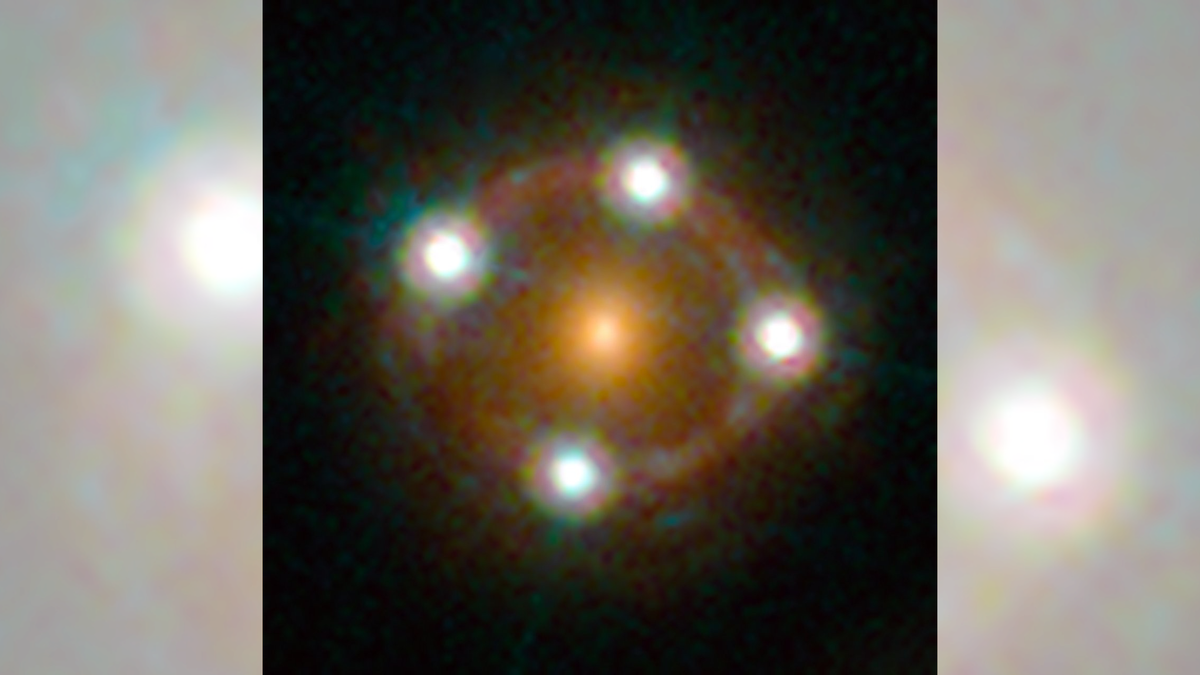Rare 'Einstein cross' warps light from one of the universe's brightest objects in this stunning imag
By Ben Turner published 1 August 2023
Einstein predicted the existence of these crosses back in 1915. Now, they are used to study distant galaxies.

A bright, orange circle in the center of a ring of light. Four bright white spots form a cross shape on the circle's perimeter
An example of an Einstein cross, previously spotted by the Hubble Space Telescope (Image credit: ESA/Hubble, NASA, Suyu et al.)
Astronomers have discovered a stunning, rare example of an "Einstein cross" splitting and magnifying light from the far depths of the universe.
In the image, one foreground elliptical galaxy, around 6 billion light-years from Earth, has warped and quadrisected a bright beam of light from a background galaxy about 11 billion light-years from our planet.
The resulting pattern, first predicted by Albert Einstein in 1915, shows four smudges of blue light haloed around the orange of the foreground galaxy — a rare arrangement that astronomers will study to get a better understanding of the universe.
The background light likely comes from a quasar, a young galaxy whose supermassive black hole at its core gobbles up enormous amounts of matter and blasts out enough radiation to shine more than a trillion times more brightly than the brightest stars.
More:
https://www.livescience.com/physics-mathematics/gravity/rare-einstein-cross-warps-light-from-one-of-the-universes-brightest-objects-in-this-stunning-image
